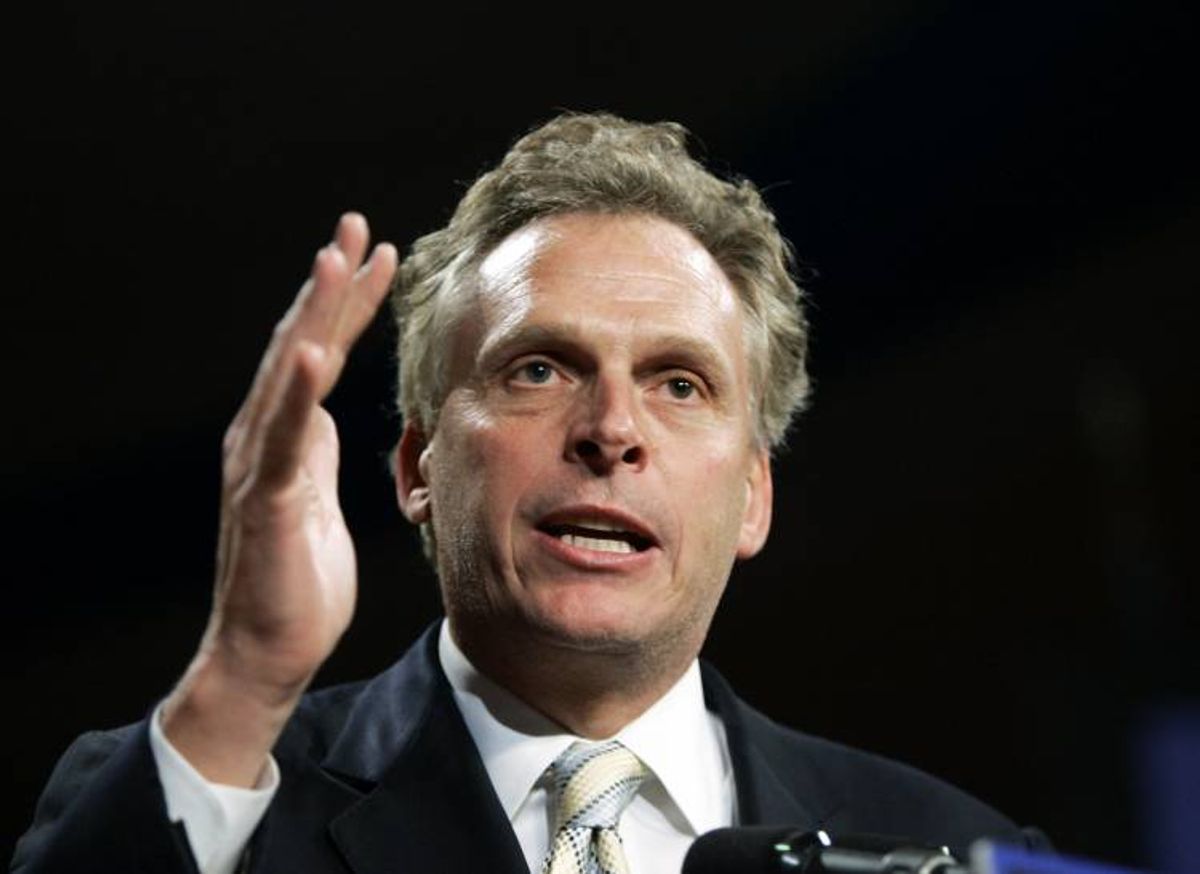The race for governor of Virginia will be the marquee political contest of 2013, almost by default.
After all, Virginia and New Jersey are the only two governorships up next year, and the Garden State race is losing suspense by the day; Chris Christie is about as well-positioned for reelection as a Republican can be in his state. And the only other major election, for mayor of New York City, lacks the partisan edge of a typical statewide race and figures to be populated by a collection of low-wattage candidates. At least the outcome in Virginia, a swing state in presidential politics, could have national implications.
Already the race is shaping up as the first major test of Tea Party-style conservatism in President Obama’s second term. Ken Cuccinelli, who has used his attorney general’s post to challenge the Affordable Care Act, stick up for Arizona’s anti-immigrant law, and challenge the science of climate change, has cleared out the Republican field and his poised to secure the GOP nod without opposition. It helped Cuccinelli immeasurably that a state party committee had voted to award the gubernatorial nomination through a convention, where the small universe of delegates will be dominated by conservatives, and not a statewide primary. Cuccinelli’s convention strength was the reason Lieutenant Governor Bill Bolling, a less polarizing figure, recently backed out of the race.
In the wake of last month’s election, when Obama carried the state by nearly four points over Mitt Romney, there’s reason to suspect that Cuccinelli is a poor match for the Virginia of today. After siding with the GOP in every race from 1968 on, the state has now voted Democratic in two straight presidential elections, and Democrats have also won the last three U.S. Senate contests. A particular source of strength for Democrats has been the professional class in fast-growing northern Virginia, voters who don’t particularly mind the GOP on economic issues but are bothered by the party’s emphasis on exclusionary cultural themes. Cuccinelli seems particularly ill-suited to win these folks back to the Republican column.
Then again, he did manage to win the AG’s office three years ago, in the same election that brought Republican Bob McDonnell to the governorship in a landslide. Virginia Republicans were able to enjoy good – great, really – years in 2009 and 2010 because the composition of the electorate was much different. Turnout among African Americans and Latinos, which was through the roof in 2008 and 2012, fell dramatically, while conservatives trooped to the polls with great enthusiasm. To judge from the ’09 and ’10 results, you’d never have guessed that Virginia was in the throes of a red-to-blue transformation.
Which is why next year’s governor’s race is such an interesting test, with national implications. As in ’09 and ’10, Obama’s name won’t be on the ballot, so Democrats will need to turn out their core groups without him – something they’ve failed to do so far. If they manage to pull it off, though, it will be a very troubling sign for the GOP, an indication that the “coalition of the ascendant” has become the foundation of a new, more stable political majority. On the other hand, if a candidate as far to the right as Cuccinelli manages to win in a swing state next year, it will give Republicans hope for 2016. See, they’ll say, we don’t have to change too much to win in the battlegrounds.
Of course, Cuccinelli won’t be the only name on next fall’s ballot. It now looks fairly certain that his Democratic opponent will be Terry McAuliffe, the former DNC chairman and close Clinton friend. McAuliffe’s obvious strength is in fund-raising, but beyond that he has an awful lot to prove. The last time he ran, in the 2009 Democratic primary, he raised and spent more than $8 million but finished a very distant second in the three-way race with just 26 percent of the vote. As Nate Cohn explained earlier this week, McAuliffe ran particularly poorly in northern Virginia, even though that’s his home base, and seemed to alienate Democrats as the campaign progressed.
But McAuliffe is nothing if not dogged, and he’s spent the three years since his defeat pressing the state’s Democratic establishment for a second chance. And it looks like he’s going to get his way. After briefly toying with a run, Mark Warner announced last month that he’d stay in the Senate, and just yesterday Tom Perriello – the former Democratic congressman who is something of a liberal folk hero – too his name out of the mix and endorsed McAuliffe. It shouldn’t be long now before all the state’s Democratic heavyweights are behind him.
From a general elections standpoint, Republicans could do a lot better than Cuccinelli and Democrats could probably do better than McAuliffe. But even if the star players are unusually flawed, Virginia will still be the race to watch in 2013.



Shares